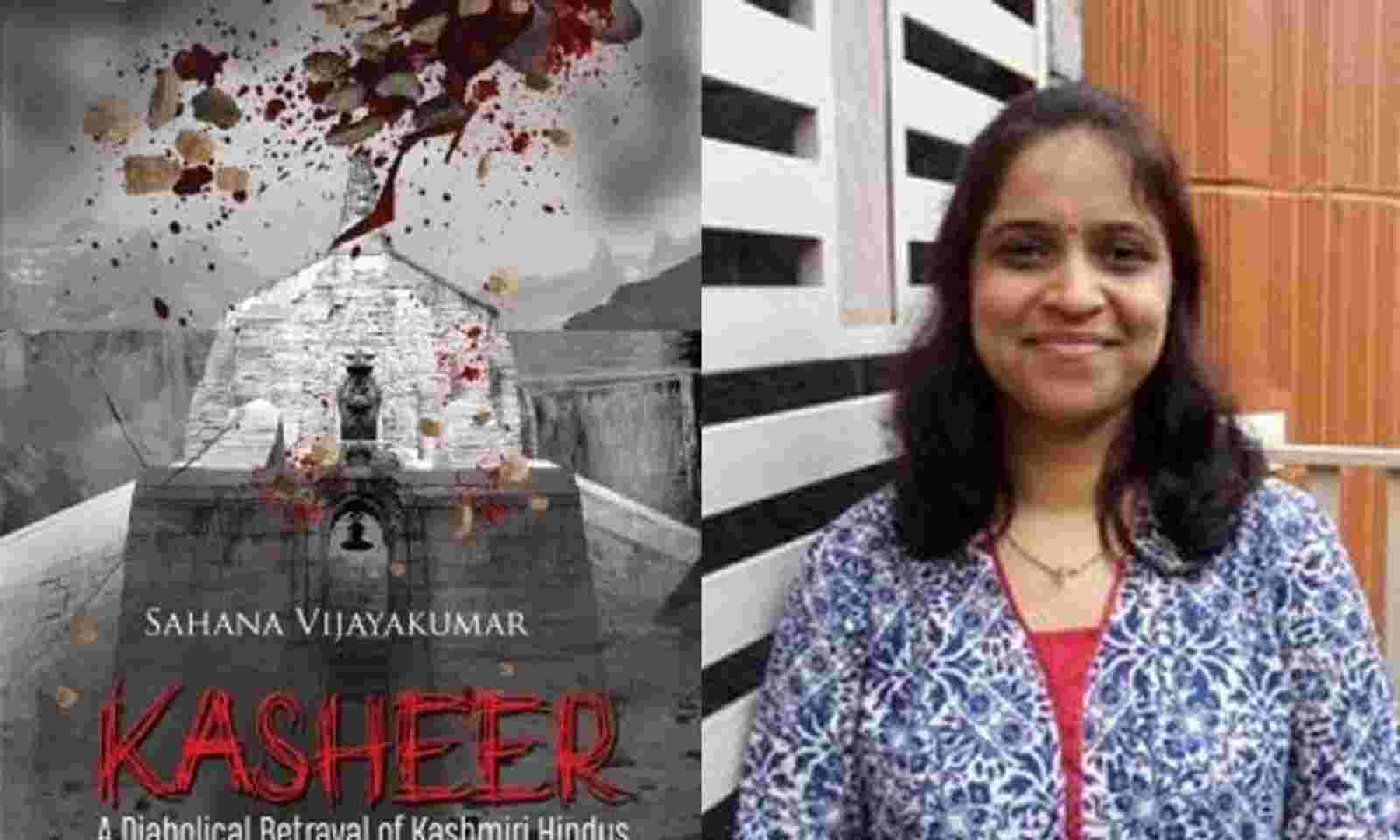Frontlist | Book Beat: Kasheer – A diabolical betrayal of Kashmiri Hindus
Frontlist | Book Beat: Kasheer – A diabolical betrayal of Kashmiri Hinduson Jan 13, 2021

Sahana Vijayakumar's Kasheer is the story of the forgotten genocide of Kashmiri Hindus. Originally written in Kannada and published in 2018 when Article 370 was still in force, Garuda Books published the English translation of this novel in December 2020.
Kasheer – A diabolical betrayal of Kashmiri Hindus, by Sahana Vijayakumar: With the abrogation of Article 370, Kashmir heralds a new chapter in her history. However, vested interests continue to impede the returning of normalcy in Kashmir with their misinformation campaign. Therefore, it is necessary that all facets of this saga, leading up to violent displacement of Kashmiri Hindus, are understood to pave the way for the state to embark on her path towards enduring peace. Although a work of fiction, in this book, author Sahana Vijayakumar uses the power of storytelling to present thoroughly researched facts on everything one needs to know regarding the Kashmir issue. Kasheer in Koshur language means Kashmir. Kasheer is the story of the forgotten genocide of Kashmiri Hindus. The author uses the characters in this book, that is easily relatable to contemporary reality, to synthesise the history of Kashmir from its pre-Islamic past with post-independence events around the creation of Article 370 in the constitution of India, and the Islamic radicalisation of the state leading to the genocide of Kashmiri Hindus in 1990. It also demystifies the much-touted narrative of ‘Kashmiriyat’ used to obscure the issue and keep the Kashmiri Pandits’ plight out of the nation’s imagination. Drawing from authentic sources of history, the author calls out Jawahar Lal Nehru’s role in mishandling the integration of this state into India, leaving a festering wound on the union to this day. Delving into the communications between Sardar Patel and Nehru, the book highlights Nehru’s megalomania in discarding his colleagues and professionals’ better judgements and taking the issue, to the United Nations, forever altering the course of Kashmir’s history. The story recounts the relatively peaceful coexistence between Hindu and Muslim communities in the decade preceding the genocide. It traces the root of the Muslim community’s radicalisation, inspired by the concept of jihad, as ordained by Islamic theology. It references the holy books of Islam used to turn the Muslim community against their Hindu neighbours. It moves quickly to the horrors of the day on 19th January 1990, when the Hindu community were given three choices “Ralive, Tsaliv ya Galive” (either convert to Islam, leave the land, or die). The gruesome violence of the Pandit exodus that followed comes as a punch in the readers’ gut. The novel also delves into the human tragedy of this genocide. The apathy of the nation to stand up for the minority Hindus of Kashmir, the grim realities of the refugee camps, an entire generation withheld from being born and native inhabitants of a proud culture living in squalid conditions, even to this day, makes for compelling reading. Besides the despair and helplessness amongst the few Hindus that have returned to the valley, the novel also brings to the fore, the yearning for change within the Muslim community that runs as an undercurrent. It becomes evident that it is the exclusivist bubble created by Article 370 that prevents access to investments and opportunities to Kashmiri youth, that stands in the way of enduring peace in Kashmir. Originally written in Kannada and published in 2018 when Article 370 was still in force, Garuda Books published the English translation of this novel in December 2020. “When dealing with a subject such as this, Indian writers usually revel in their magnanimity of religious tolerance or beyond the skies Gandhian idealism; very few research the facts and present the harsh truths,” says Dr S L Bhyrappa, India’s foremost author, in his foreword to this book. “Kashmir issue cannot be understood without grasping the layers of traditionalism, reformism, secularism and fundamentalism within Islam. If the government that rules us does not possess the objectivity to know its fact-based dimensions, it will be unable to grasp the genesis and progression of this problem”, says Sahana. She draws upon her first-hand account of experiences in the backroads of the present-day Kashmir, and a detailed study of various primary sources. She has produced a work of fiction that tells the most authentic story of Kashmiri Pandits’ tragedy and can be relied on as a reference for serious study of the subject. Source: News X
Author
Authors
Bestseller
Book
book news
Books
Coronavirus
Covid-19
Education
Education News
Frontlist
Frontlist Article
Frontlist Book News
Frontlist Books
Frontlist India
Frontlist India news
Frontlist News
Google news
Lockdown



.jpg)






.jpg)
.png)

.jpg)
.jpg)
.jpg)
.jpg)
.jpg)










Sorry! No comment found for this post.